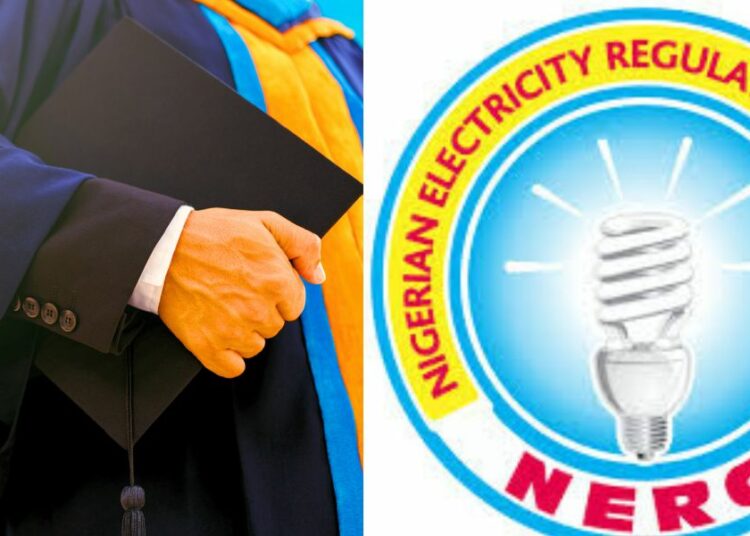Recently, the Nigerian Electricity Regulatory Commission (NERC) raised electricity tariffs for consumers enjoying 20 hours of power supply daily, a development that has been criticised by many considering the country’s current hardships.
While Nigeria grapples with actual transmitted power of between 4,000MW to 4,500MW for an estimated 200 million population, a country like Brazil generates 100,000MW of grid-based power for 201 million, and South Africa generates 40,000MW for 50 million persons.
In the wake of the increase in electricity tariffs for customers under the Band A category to N225 per KWh, a 240 per cent increase from the initial ₦68 per kWh, Nigerians from all walks of life have continued to denounce the move, considering the immediacy of the hike.
Energy remains a major challenge across every facet of Nigerian society, causing avoidable difficulties in executing simple tasks and subjecting the economy’s productive sector to grinding hardship in their operations.
Even more disturbing is the challenge posed by this ill-advised hike for universities, where it has become a barrier to effective research, student learning, and the general smooth running of the tertiary education sector.
Expectedly, Nigerian universities have suddenly been hit hard by high energy tariffs, with many of them spending millions of naira each month to keep the lights on. According to reports, first-generation universities in Nigeria pay between N250 million and N300 million for electricity every month. This is unaffordable and presents a significant drain on their very lean resources, with many struggling to keep up with energy costs.
Since the hike was introduced, the University of Ilorin’s monthly electricity bill has jumped from N70m to N230m, while at the University of Port Harcourt, the management pays over N50 million on electricity bills monthly.
Following the insistence of students of the University of Benin on their demands for a 24-hour supply of electricity, among other demands, the university’s management shut down academic activities indefinitely. The students had taken to the streets to protest the one-hour power ration the school’s authority subjected them to.
This newspaper recalls that in 2020, during President Muhammadu Buhari’s administration, the federal government introduced the Energising Education Programme (EEP) to provide a sustainable and clean power supply to 37 federal universities and seven university teaching hospitals across Nigeria.
Part of the project includes providing an independent power plant, upgrading existing distribution infrastructure, improving street lighting to improve security within the universities’ campuses, and developing a world-class training centre on renewable energy for each university.
This project was supposed to have been implemented by the Rural Electrification Agency (REA) and developed in phases. The first phase was expected to deliver 28.5MW to nine federal universities and one University Teaching Hospital using solar hybrid and/or gas-fired captive power plants.
Other universities in the Phase 1 of the “Operation Light Up Nigerian Universities” programme, aside Federal University of Agriculture, Makurdi (FUAM), include Abubakar Tafawa Balewa University , Bauchi, Bayero University, Kano, Alex Ekwueme Federal University, Federal University of Petroleum Resources – Effurum, Nnamdi Azikiwe University – Awka, Obafemi Awolowo University and Teaching Hospital – Osun, University of Lagos – Lagos and Usmanu Danfodiyo University – Sokoto. Two years later, while some have been implemented and started generating power, other institutions are still lagging.
The saying that necessity is the mother of invention has become time-bound for universities to think outside the box about finding a lasting solution to this big-budget drain on their lean resources.
In the view of this newspaper, there’s hardly any university in the country that is not either partly or wholly dependent on generating sets to power its libraries and laboratories. This exacts a huge cost on the institutions’ meagre resources, accompanied by the hazards posed by harmful emissions.
We are persuaded that universities should start generating their own power rather than relying on the national grid to solve this lingering problem. Experts suggest that universities must explore low-cost energy harvesting technologies to reduce their spending on electricity supply.
Universities are centres of research and learning, and constant electricity is expected to be attainable by generating power using the available resources, particularly through the expertise of their electrical, mechanical, and water resources faculties. This can be a sustainable solution in addressing power outages and improving campus energy self-sufficiency.
Some private institutions like Covenant and Birmingham Universities are already generating their power needs and extending part of their power to their host communities. We recall that Stanford University in California significantly fostered Silicon Valley in the United States of America over several generations. It continues to serve as a model for other institutions and regions seeking to foster local innovation.
Nigerian universities, especially first-generation institutions, have a ready model from which to copy. It ought not to be rocket science.





